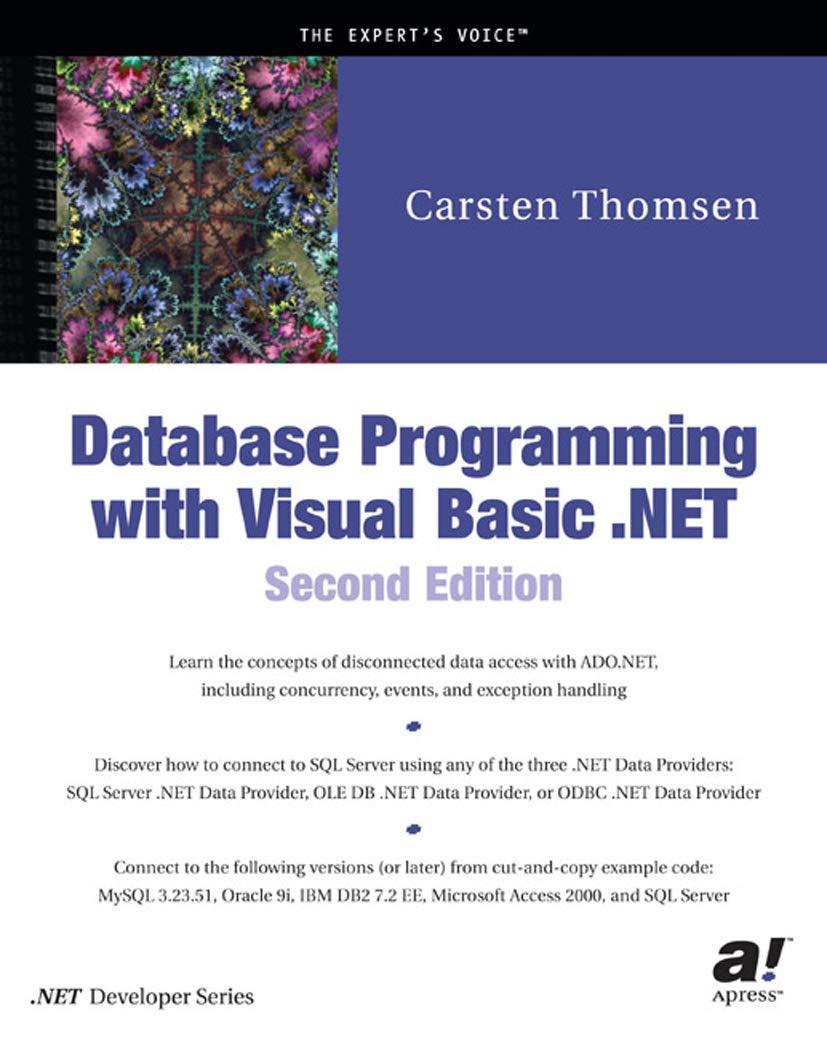Question
Problem 1 (InputMismatchException): For this exercise you will write a program, ComputeSum.java, that asks the user to input two integers n1 and n2 such that
Problem 1 (InputMismatchException): For this exercise you will write a program, ComputeSum.java, that asks the user to input two integers n1 and n2 such that 0 n1 n2. The program will then ask the user to enter a floating point number exp. Finally, the program computes and displays the value 1 + ... + 2. In your solution, you are required to implement each of the following two methods: // Prompts the user for an integer that is >= lowerBound. // Keeps prompting and reading from the input scanner until it receives // a valid entry. Returns that entry. public static int readIntGreaterThanOrEqualTo(Scanner input, int lowerBound) // Prompts the user for a double. // Keeps prompting and reading from the input scanner until it receives // a valid entry. Returns that entry. public static double readDouble(Scanner input) The first of these two methods, readIntGreaterThanOrEqualTo, should use the Scanner.nextInt() method to read in the integer (i.e. make the call input.nextInt()). Put the call to nextInt() inside a try block and catch an InputMismatchException if it occurs. (See Listing 12.5 InputMismatchExceptionDemo.java in Section 12.2 for an example.) If your code catches such an exception then display an appropriate error message and prompt the user again. (See example on next page.) Also, if the input value is less than lowerBound then your method should display a (different) error message and prompt the user again. Do not use exception handling in the case were the input value is less than lowerBound: simply detect and deal with that using a simple if-statement. The second method will be similar but will use Scanner.nextDouble() to read in the users value. Again, deal appropriately with any InputMismatchExceptions that occurs. For this method you do not need to compare the users value with a lower bound. Your main method should call readIntGreaterThanOrEqualTo twice and readDouble once, and then compute and display the appropriate sum. On the next page are two example runs of the program. Use exactly the prompts, error messages, and report format shown there, including punctuation. Treat it as though this is how your boss said that it should look, exactly. In this example I asked the program to compute the value 21.5 + 31.5 + 4 1.5 + 51.5. Enter an integer greater than or equal to 0: 2 Enter an integer greater than or equal to 2: 5 Enter a floating point number: 1.5 sum = 27.204919434951773
In the next example I asked for the same sum. I made a lot of input mistakes along the way, but got there eventually. The program gave appropriate prompts and error messages at every step. Enter an integer greater than or equal to 0: -3 Try again. The number must be greater than or equal to 0. Enter an integer greater than or equal to 0: two Try again. An integer is required. Enter an integer greater than or equal to 0: skjlsks Try again. An integer is required. Enter an integer greater than or equal to 0: 2 Enter an integer greater than or equal to 2: one Try again. An integer is required. Enter an integer greater than or equal to 2: 1 Try again. The number must be greater than or equal to 2. Enter an integer greater than or equal to 2: 0 Try again. The number must be greater than or equal to 2. Enter an integer greater than or equal to 2: -1 Try again. The number must be greater than or equal to 2. Enter an integer greater than or equal to 2: 5 Enter a floating point number: skjhs Try again. A floating point number is required. Enter a floating point number: jjjjj Try again. A floating point number is required. Enter a floating point number: 1.5 sum = 27.204919434951773
Can anyone help me with this ?
Step by Step Solution
There are 3 Steps involved in it
Step: 1

Get Instant Access to Expert-Tailored Solutions
See step-by-step solutions with expert insights and AI powered tools for academic success
Step: 2

Step: 3

Ace Your Homework with AI
Get the answers you need in no time with our AI-driven, step-by-step assistance
Get Started


